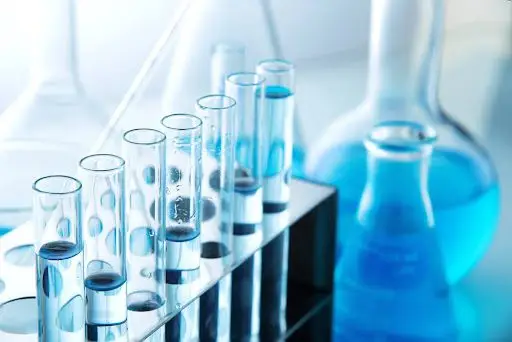May '24

Glass rods, glass tubing, and other forms of glassware are instrumental for the success of many laboratory experiments and procedures. As such, it is of utmost importance that they are treated with the care and respect they deserve when used.
Handling glass in the lab incorrectly can not only result in cracks and irreparable damage but also cause potential safety hazards. To ensure that you’re handling glassware safely in your laboratory, here’s an overview of five safety tips everyone should follow when using glass tubes, beakers, and other equipment.
Before working with glassware, it’s in your best interest to wear cut-resistant gloves. Doing so significantly reduces the risk of sustaining cuts from broken glass or sharp edges of glassware. These resistant gloves serve as a barrier between your skin and potential hazards, safeguarding you from injuries that could result from accidentally dropping or coming into contact with broken glassware.
Additionally, wearing gloves is also important if you plan to heat glassware. Gloves provide a layer of protection against burns from hot glassware, which might not be immediately recognizable as a hazard due to its similar appearance to cool glass. Of course, even if you are wearing protective gloves, all heated glassware must still be handled carefully.
Prior to using laboratory glassware, it is vital to inspect it for any defects such as cracks, scratches, or chips, as well as residual substances from previous usage. Such imperfections can compromise the structural integrity of the glass, leading to unexpected breakage under stress or when exposed to high temperatures.
Moreover, contaminated glassware can skew experimental results and potentially create hazardous chemical reactions. As such, a thorough examination helps you avoid breakage and ensures the accuracy and safety of your future experiments.
Transporting laboratory glassware not just carefully but correctly is vital for preventing accidents and maintaining a safe working environment. Improper handling can lead to drops, spills, or collisions, which not only pose direct physical risks but can also initiate chemical hazards if the glassware contains reactive substances or boiling liquids.
For instance, carrying a flask by its neck rather than supporting it from the bottom can lead to breakage, particularly if the flask is larger or filled with liquid. Following safe handling practices, including using both hands and ensuring clear pathways, will minimize the risk of accidents.
Understanding the limitations and proper use of laboratory glassware is key to preventing accidents related to thermal shock, chemical reactions, and mechanical stress. Different types of glassware are designed to withstand varying degrees of temperature, pressure differences, and chemical exposures.
For example, certain glass apparatus may crack under high temperatures or when subjected to thermal shock from rapid heating or cooling. Similarly, using glassware that is not resistant to certain chemicals — such as hydrofluoric acid — can lead to failures. Being cognizant of these capabilities ensures that glassware is used within its safe operational parameters, thereby avoiding incidents of breakage or chemical mishandling.
The proper care, cleaning, drying, and storing of glassware are fundamental practices for maintaining a safe laboratory environment. Washing glassware immediately after use removes residues of volatile materials and prevents the risk of chemical reactions during subsequent uses.
In addition, using appropriate cleaning brushes and detergents followed by thorough rinsing ensures that glassware is free from contaminants. Drying glassware before storage eliminates moisture that could facilitate unwanted chemical reactions while storing glassware in a secure and orderly manner prevents accidental breakage. These steps will not only extend the lifespan of laboratory glassware but also maintain a higher standard of safety in your laboratory.
If you need a custom glass tube or glass rod, reach out to At-Mar Glass. We specialize in creating a wide array of laboratory glassware, including special apparatuses, as well as repairing broken and cracked equipment. Call us today to learn more about our services.